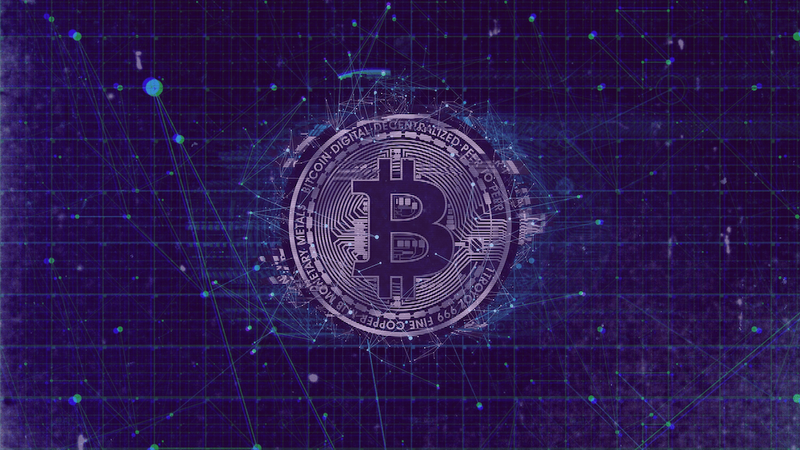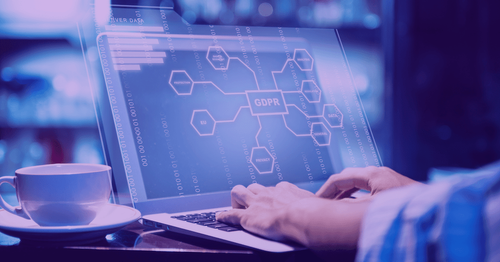How can blockchain help prevent cybercrime?
Let's talk about Blockchain and the kinds of standards that can help keep organisations and their data safe.

When we think about cybersecurity and the war between Russia and Ukraine, it's crucial to remember that a cyber warfare conflict was already taking place even before the Russian invasion of its neighbour began.
According to the Wall Street Journal, during the military invasion, attacks on websites suggest the intensification of the cyber war between Russia and Ukraine. When hacker groups, like Anonymous, declare a cyber war on Russia, it means that not only the territory is in question, but the cyberspace as well. Some Russian government websites have even been offline since the start of the offensive.
The battle today goes beyond the realms, and involves numerous wiper-type malware, which cleans information from systems. In addition, there is also the so-called denial of service (DDoS) attacks. These overload a system's server, making them unavailable. In this case, they managed to take down the websites of companies, banks, and the government.
Blockchain in Cyber Attack Defences
For Victoria Adams, Head of Government Practices at Consensys in Washington DC, digital technologies have become the foundation of United States (US) weapons, tactics, and strategies.
“Today, warfighters use connected devices to coordinate air strikes on the battlefield, drones are controlled from thousands of miles away, commanders watch real-time streaming video from battlespace, and logistics and supply chain broader supply chain are regulated and managed by complex digital technologies,” she said.
Also in 2018, the Royal Institute of International Affairs in London, also known as Chatham House, whose mission is to analyse and promote understanding of major international issues and current affairs, warned that the American nuclear weapons system, as well as the British and other countries systems, are increasingly vulnerable to cyberattacks.
“Nuclear weapons systems were developed before the advancement of computer technology. Little consideration was given to potential cyber vulnerabilities. As a result, the current nuclear strategy often ignores the widespread use of digital technology in nuclear systems.”
Thus, any attempt to hack data recorded in the blockchain or send an illegitimate order in an attempt to breach data would mean attacking all nodes of the blockchain chain simultaneously. Attacking a blockchain chair these days is almost impossible. Blockchain is one of the safest technologies when it comes to data protection. A technology, almost in its entirety, inviolable.
Decentralised Data
Both sides use cyberspace for attacks and defences.
According to Victoria, the benefits of blockchain as prevention against cyber attacks are easily understood. “Centralised management of digital communications exposes the warfighter to potential cyberattacks. When data is decentralised and complete, there is the democratisation of the battlespace, creating a safe environment in which the failure of any node will not affect the overall viability of the network. By relying on a decentralised validation system with built-in systems based on native security blockchain, one can ensure that all communications and data transfers are protected from malicious actors,” she said.
Blockchain, when used in combination with the Internet of Things (IoT), can ensure that the defence manufacturing supply chain has not been altered. Therefore, the entire ecosystem becomes traceable.
Read Also: Understanding how a Blockchain works with Python
Russia vs Ukraine: The First Cyber War
All this movement in the virtual world is an online front, with hacker groups and governments facing each other in the cybersphere. Ukraine's Minister of Digital Transformation has called for volunteers to face the cyber war against the Russians.
“We are creating an IT army. We need digital talent. All operational tasks will be given here. There will be tasks for everyone. We continue to fight on the cyber front. The first task is in the channel for cyber experts,” the minister posted on his social media accounts.
Organisations urgently need to invest in the potential of information decentralisation with blockchain against cyber attacks. We are talking about a civil war where information is worth a lot. It is necessary to pay attention to the creation of new security strategies. We believe in data privacy as a human right, so everyone needs to know what can be done to protect their data.
Although blockchain could help us in conflict and cyber wars, its usability goes far beyond that. We are starting to understand the power of blockchain and there are multiple topics to be explored inside the universe of cybersecurity and blockchain technology. That being said: can blockchain also secure systems against ransomware attacks? It’s a point of debate.
Blockchain is decentralised, and immutable. That means when information is written to a blockchain, no one can change it - not even a system administrator. It brings advantages to both data providers (your information hasn't been changed) and recipients (you can be sure it hasn't been changed).
Blockchain uses sequential hashing – transaction blocks are linked with the help of hashes to create a specified past history that guarantees the chain integrity every 10 minutes.
Along with knowledge encryption, it makes it almost impossible for any person to unilaterally alter information on the ledger without it being noticed right away. Hence, firms handling sensitive expertise can be assured of the integrity of data.
Blockchain – The antidote?
Although most ransomware attackers demand payment in bitcoins, the technological know-how that ransomware hackers use could also work as an antidote to such attacks.
Therefore, even though bitcoin payments are currently being used by attackers, other blockchain implementations could help companies prevent ransomware attacks.
More from our blog
Vaultree: Bulletproof Your Business from GDPR Breach Disclosures and Fines
Transform compliance into a significant competitive advantage - business challenges now become opportunities for growth and innovation
How Data-In-Use Encryption Supports Organisations with GDPR Compliance
Data breaches are a major concern for organisations. From hacking to phishing and insider threats, the leak of sensitive data has severe consequences, not only in finances. We're talking about reputat
Cybersecurity in 2023: What can we expect?
It's a new year, but how will the infosec industry respond with cyberattacks on the rise?


